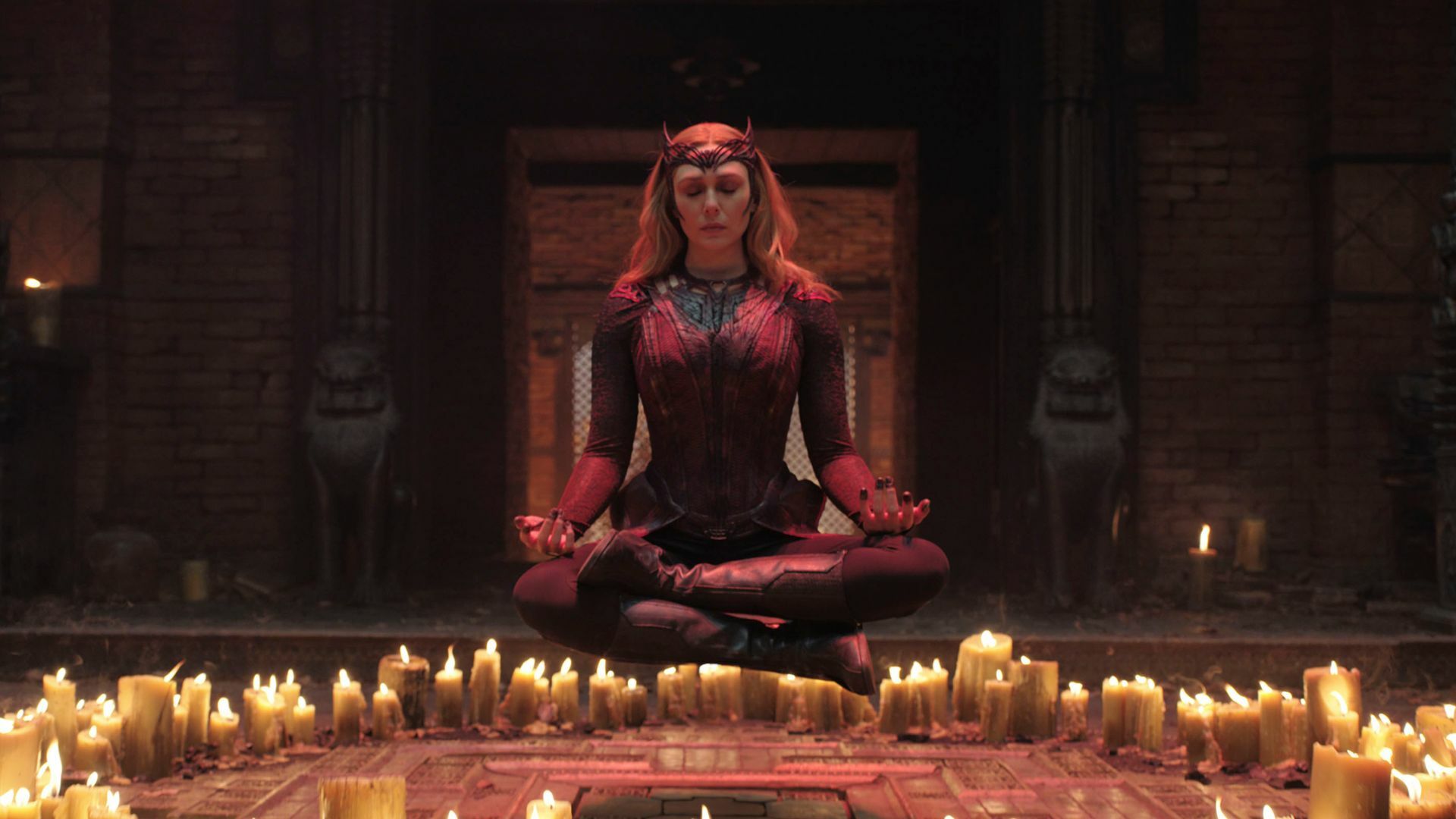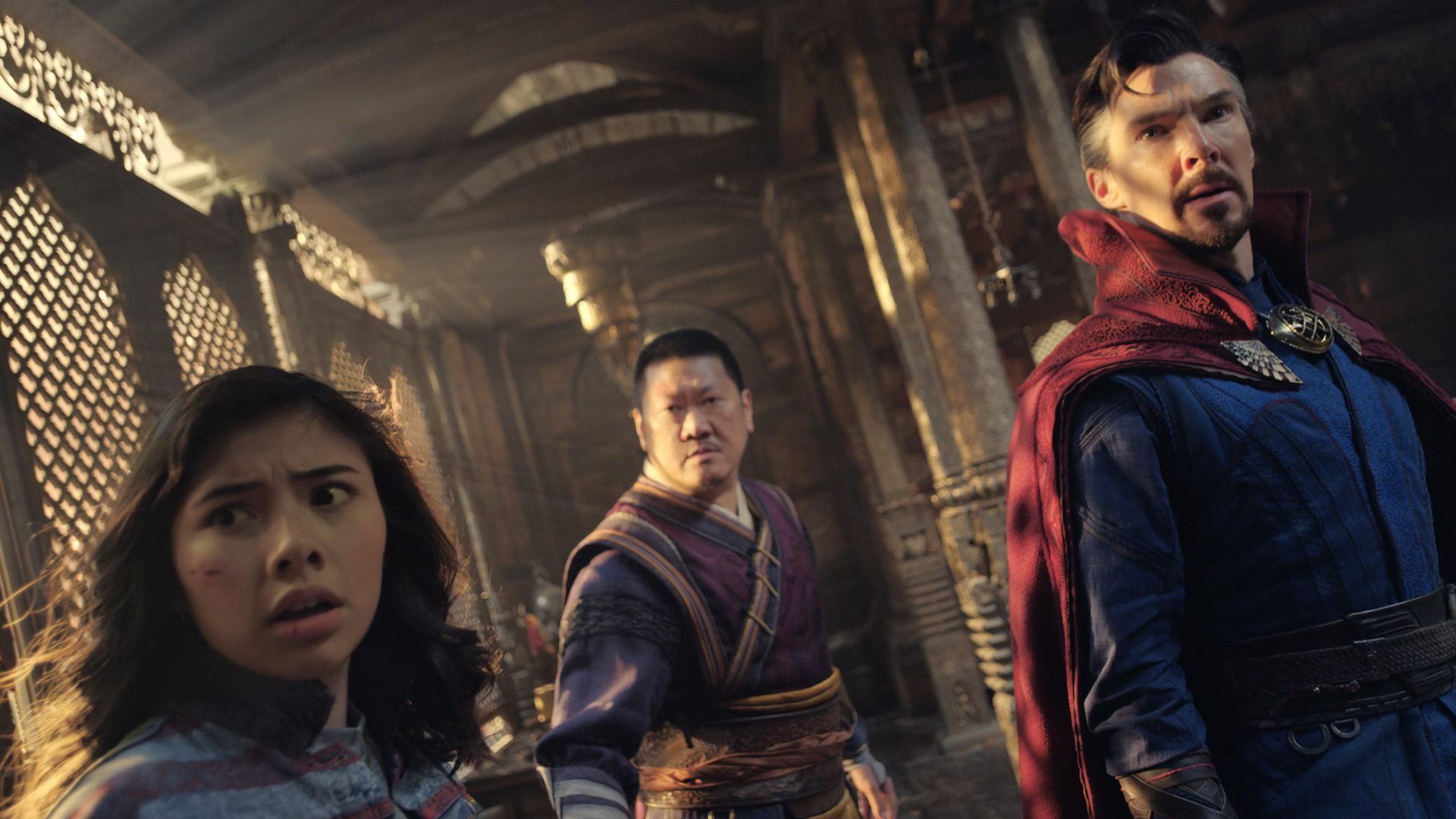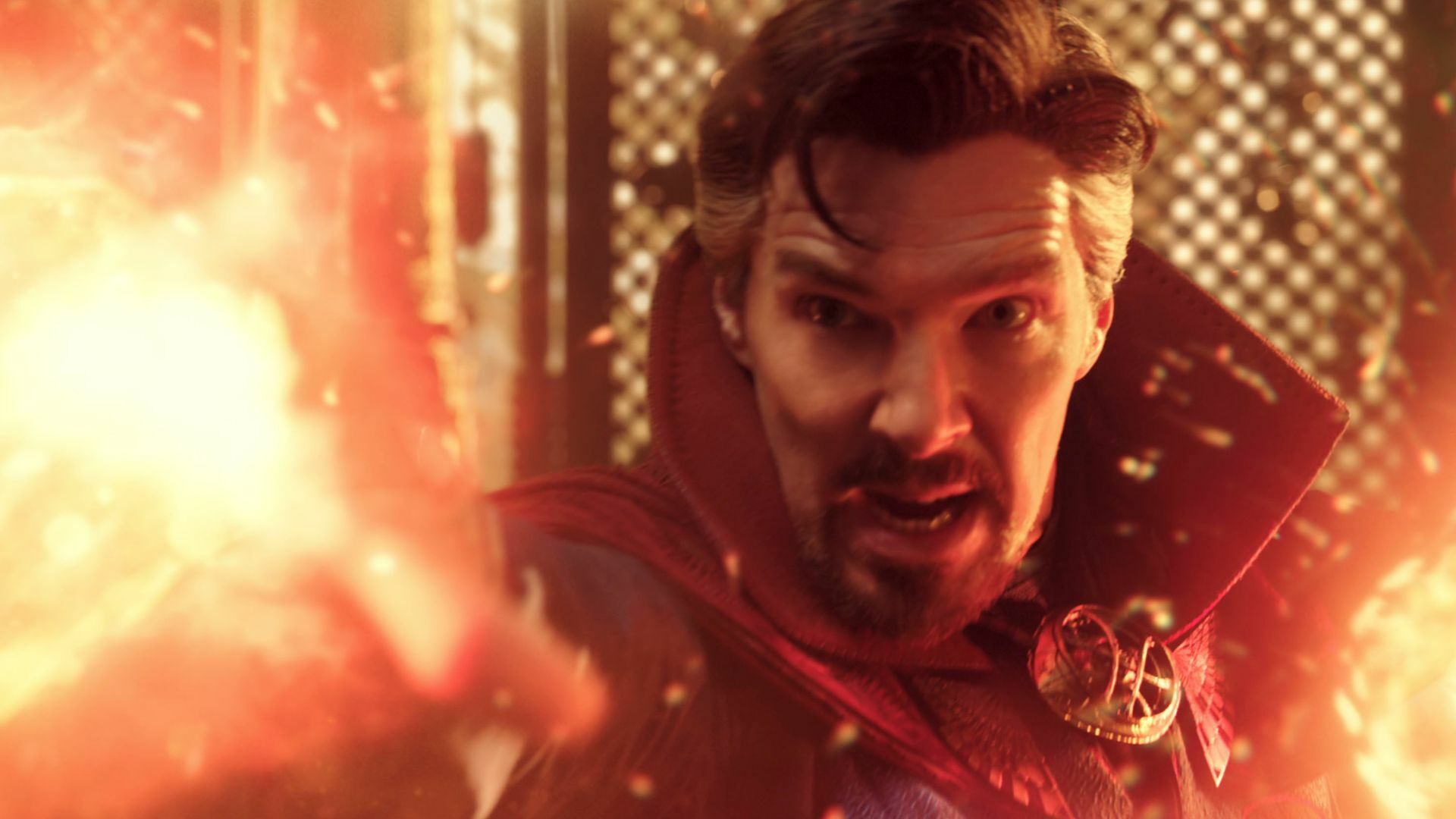‘Doctor Strange in the Multiverse of Madness’ spoiler-free review: It’s ‘Spider-Man’ meets ‘Evil Dead 2’

Before the MCU arose with Iron Man, Sam Raimi cemented the meaning of a superhero movie over the course of his Spider-Man trilogy. So what could possibly bring him back to the genre he helped forge? Cynics might say a big fat Disney check. But those who witness Doctor Strange in the Multiverse of Madness will know that what drew Raimi back was the chance to go full tilt and shake up the standards the MCU machine had built.
Does Doctor Strange in the Multiverse of Madness deliver sky fights, superhero spectacle, fan service cameos, and a soaring score? You betcha. But it does all this through a Raimi lens that is more violent, more cornball, and much, much grosser than the MCU has dared go before. This is Raimi’s most Raimi superhero movie yet, playing like Spider-Man versus The Evil Dead 2.
To preserve the thrills, I’m going very light on spoilers. Suffice to say, Doctor Strange (Benedict Cumberbatch) dashes to rescue a teen girl from a rampaging monster, only to discover that America Chavez (Xochitl Gomez) is being hunted by evil forces who want to drain her of her superpower. Big deal alert: She can travel through the multiverse at will. But like Miles Morales’s invisibility in Spider-Man: Into The Spider-Verse, she hasn’t mastered this power yet; when she’s scared, her power propels her into an alternate reality. So she needs some help.
Strange gets dragged into this multiverse-hopping mayhem, as do his colleagues Christine Palmer (Rachel McAdams), Wong (Benedict Wong), and Wanda “Scarlet Witch” Maximoff (Elizabeth Olsen).

The setup of a mind-bending multiverse (and the dragon’s hoard of a Marvel budget) means screenwriter Michael Waldron can pitch his heroes into a dizzying barrage of weird worlds, each with their own version of Dr. Stephen Strange. Cumberbatch, who just earned an Academy Award nomination for his nuanced and sly portrayal in The Power of the Dog, barrels giddily into the challenge to play plenty of sorcerers, from supreme to silly to sinister to the Sam Raimi special.
Doctor Strange 2 is wickedly funny

Along the way, these Stranges quip with that world-weary growl, providing a sharp contrast to the unapologetic goofiness of Raimi’s brand of humor. Fight scenes unlike any the MCU has seen before play out with comedic aplomb, thanks in part to a multi-faceted score from Danny Elfman. In some sequences, this manic maestro pulls influences from old monster movies; in others, quirky sitcoms, or the grunge rock of ’90s female angst, or the chortling choruses of demonic horror. But in one climactic sequence between battling superheroes, Elfman’s score comes alive in a way both ridiculous and exhilarating.
Raimi is, of course, so much more than his Spider-Man movies. Doctor Strange in the Multiverse of Madness allows him to tap into his — ahem — roots in horror. Fans will relish references to Evil Dead, along with a cameo that’s predictable yet superb, and a literal wink to camera that is sublimely bizarre. But those who loved Raimi’s vicious and witchy Drag Me To Hell will recognize the eerie atmosphere that he billows into the MCU with inky black pools, billowing blood-red clouds, and deliciously horrid set pieces.
Doctor Strange in the Multiverse of Madness is very, and thrillingly, violent

The first Doctor Strange movie dabbled in horror moods thanks to director Scott Derrickson. But what Raimi brings to the table is unabashed grossness. Forget the glossiness of Cosmic Marvel. From the first monster to attack on Manhattan, there is glop in this movie. Tentacles dripping with ooze is just the beginning. There will be blood. There will be gore. There will be so much of it that you might well wonder how Marvel Entertainment managed to get a PG-13 rating from the MPAA. Even supposedly mature and gritty superhero movies feel sanitized in their violence and gore for fear of losing access to a massive audience of kids — so it is surprising and thrilling that Raimi brought such blood and guts and goo into the MCU.
Of course, there have been ultra-violent superhero movies, mostly of the R-rated variety (see Kick-Ass, Deadpool, Logan). But this is Raimi violence. It is violence that leaves a mess — and has us howling with horror and laughter. A horror auteur with no fucks to give, Raimi knows our dark hearts and weird little desires. So he gives fans what they think they want, and then pulls a monkey paw’s twist on that. It’s remarkable and twisted fun, in part because you can’t believe he got away with this!
A horror auteur with no fucks to give, Raimi knows our dark hearts and weird little desires.
It’s not just that the violence is brutal, though much of it is. One murder feels like a scene snatched from The Boys, while others are sure to ignite social media with yowls. Yet not all of this violence is onscreen. It hits hard all the same, partially because of the aforementioned glop, which just sells evisceration, and partially because of the classic Raimi close-up: Tight shots on our heroes so suffocating, we can’t escape the intensity of expression as something truly horrible befalls them.
It’s shocking in a way that is freshly exhilarating in this franchise that plays it safe. It seems Raimi has chucked the manual, the guardrails, and seat belts, and is quite happy to chuck us off a cliff. And we’re happy for the fall because this is one hell of a ride.
Doctor Strange is corny in just the right way

While Doctor Strange in the Multiverse of Madness is full of truly shocking moments, there’s still an unfailing sentimentality that’s likewise deeply Raimi. His Spider-Man movies were defined by big emotions played broad and earnest. The great power and great responsibility of it all made each adventure, no matter how smudged in rubble and blood, an inspiring parable for fighting for a better world.
This might seem the wrong mood for Doctor Strange, a notoriously snarky hero. But paired with the wide-eyed and resilient America (Gomez is radiant), he is challenged to be a better — more hopeful — man. After all the gruesome spectacle that is packed into the rollicking runtime of 2 hours and 6 minutes, such corniness might sound disjointed. But this is what Raimi does: balances the sentimental with the sick. Though perhaps never so much of both in one movie.
Raimi doesn’t hold back in Doctor Strange in the Multiverse of Madness. He happily tosses out the action, thrills, and superhero razzle-dazzle MCU fans have come to expect. He’ll hand out the fan service that’s been long begged for online. But with all this comes kooky humor, corny sentimentality, gloppy gore, jolting shocks, and an inky horror atmosphere that makes it seem like anything is possible in Raimi’s hands.
It might be Marvel’s multiverse, but Doctor Strange in the Multiverse of Madness is Raimi’s plaything. And we wouldn’t want it any other way.
Doctor Strange in the Multiverse of Madness is now in theaters.